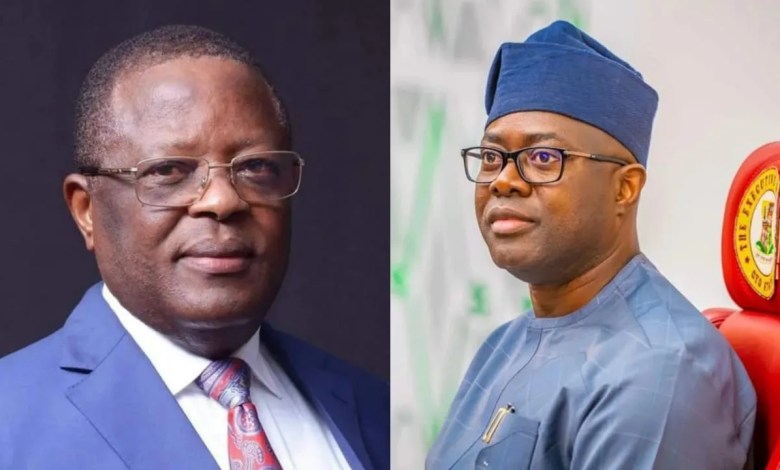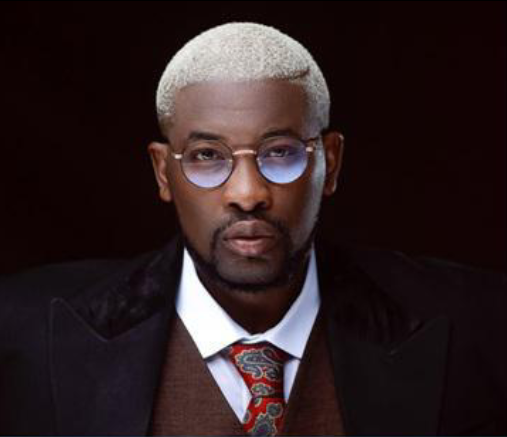
“The God of My Pastor”: Alex Unusual Sparks Controversy with Blunt Take on Religious Idolization

In the age of social media, where every statement is dissected, debated, and sometimes demonized, one comment from a celebrity can ignite an entire conversation — or conflagration. This time, it’s former Big Brother Naija housemate and media personality Alex Unusual who has stirred the hornet’s nest. Known for her unfiltered opinions and strong personality, Alex didn’t mince words in her latest Instagram post, where she called out what she describes as the blind idolization of religious leaders, particularly pastors.
“Once I hear you say ‘The God of my pastor’, I know you are a lost cause and we can’t reason the same,” Alex wrote. That sentence alone has become a digital grenade, exploding across Twitter, Instagram, and WhatsApp group chats in a way only Nigerian commentary on religion can.
In a society where spiritual leaders are revered with almost unquestionable loyalty, Alex’s words were a direct affront to a deeply entrenched cultural phenomenon. Many Nigerians refer to their faith through the lens of their pastors, invoking “The God of Pastor X” as a means of testifying to perceived divine intervention or blessings. To Alex, however, that phrase reveals something else entirely — a form of dependency that, in her eyes, borders on brainwashing.
“Those ones that go extra miles to make their pastor their wallpaper,” she continued, with the kind of dry sarcasm that made her both loved and controversial during her BBNaija days. Her statement wasn’t merely a critique; it was a pointed callout of what she sees as misplaced worship. For Alex, such acts reflect not just devotion, but a disturbing elevation of pastors to near-divine status — a sentiment many would agree is prevalent in churches across the country.
She didn’t stop there. “The day I’m ready for conversations about religion, I know a lot of people will fight me but again, I know my mouth,” she warned. “I’ll say my own and hell can be let loose for all I care. A lot of people are brainwashed.”
Alex’s choice of words — “lost cause,” “brainwashed,” “can’t reason the same” — drew a line in the sand. She positioned herself on one side: rationality, independence, personal faith. On the other side: blind followers, religious idolizers, those unwilling to question the systems they’re born into. Her tone was unmistakable — she wasn’t trying to be polite, politically correct, or spiritually cautious. This was not a sermon; it was a call for clarity.
In a country where the church is both sanctuary and stage, where sermons are broadcast like political rallies, and where the influence of religious leaders often surpasses that of elected officials, Alex’s comments struck a nerve. Her use of “the God of my pastor” as shorthand for religious manipulation challenges the language of modern-day Christianity in Nigeria — a Christianity sometimes more loyal to a man with a microphone than to the principles of Christ himself.
Predictably, reactions were swift and sharply divided. Some praised her bravery for saying what many dare not utter publicly, especially in a deeply religious society where pastors often command uncritical devotion. Her fans flooded the comments with supportive messages: “Finally someone said it!” “You’re not mad, they are.” “I stopped going to church because of this exact nonsense.”
But others were outraged. They accused her of being disrespectful to the church, of misunderstanding spiritual authority, of prideful ignorance. “How can you call someone a lost cause for their faith expression?” one user posted. “You don’t know what the God of my pastor has done for me.” The term “God of my pastor,” to many, is not idolization — it’s gratitude. For them, their pastors are vessels through which their lives have changed for the better, and Alex’s scathing commentary felt like a slap to their testimonies.
Still, her post raises valid, if uncomfortable, questions. Where does reverence for a spiritual leader end and worship begin? Is it possible that in our hunger for miracles, signs, and wonders, we’ve made gods of men? Alex seems to think so. And she’s not alone.
In recent years, there’s been a growing undercurrent of disillusionment among Nigerian youths with organized religion. Scandals involving high-profile pastors, the commercialization of church services, and the often materialistic message of “prosperity gospel” have led many to reconsider what faith should look like. Alex’s comments might be provocative, but they reflect a broader generational skepticism that’s hard to ignore.
Whether you agree with her or not, it’s clear that Alex Unusual isn’t afraid to be the voice that breaks the silence. Her words, loaded with frustration and defiance, are not just about religion — they’re about critical thinking. She’s challenging a culture that sometimes confuses obedience with faith, and leadership with lordship.
There is a price to pay for speaking truth — or what one perceives as truth — in a space as sensitive as religion. Alex knows this. She even acknowledged the backlash that might follow: “I’ll say my own and hell can be let loose for all I care.” It’s not just a flippant remark. It’s a statement of intent. She’s not trying to win a popularity contest. She’s trying to provoke thought, maybe even discomfort.
In a society where silence is often safer, where questioning a pastor can be seen as questioning God, Alex Unusual has taken a sledgehammer to the stained glass. Whether that’s viewed as courageous or blasphemous depends entirely on which side of the pew you’re sitting.
But one thing is clear: the conversation has been sparked. And in a country like Nigeria, where faith is both deeply personal and intensely public, that conversation is long overdue.


